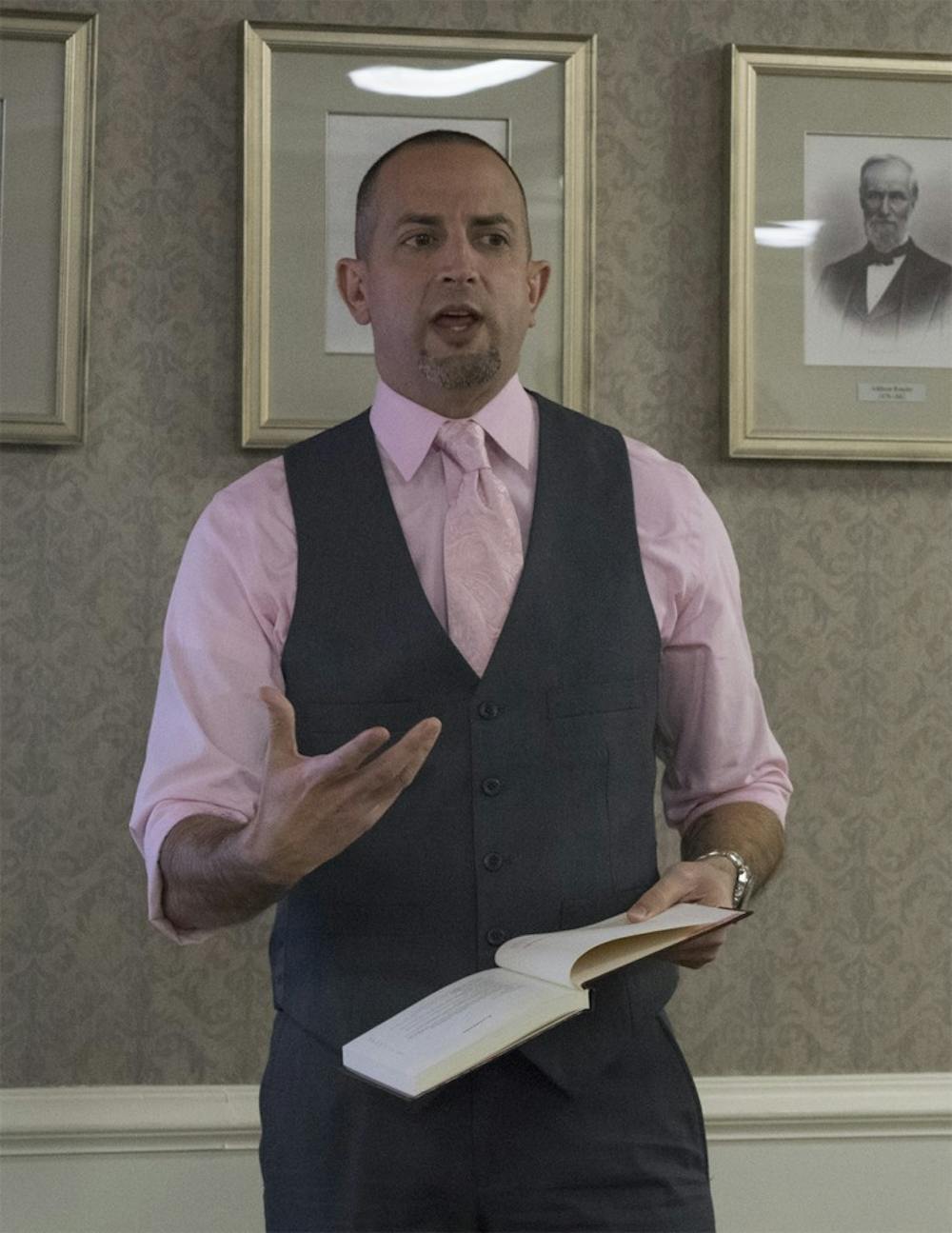Amezcua was one of about 50 students who attended a talk sponsored by La Casa about the history and current culture of Latino fraternities and sororities. The talk was focused toward students currently in Latino greek organizations as well as potential members, La Casa director Lillian Casillas said.
“Ten minutes ago I didn’t even know this was happening,” Amezcua said. “My friends just grabbed me in the hallway and asked me to come. But this seems pretty cool, and I think I might join. It’s nice to be around a community of people like me.”
The speaker, Juan R. Guardia, focused on community and empowerment. Latino fraternities and sororities can provide support and opportunities not otherwise available to minority students, Guardia said.
He said by emphasizing leadership and service and providing a source of academic support, Latino greek organizations often give underrepresented students a better chance of success after graduation.
“There are more Latino and Hispanic students enrolled in college than ever before, but that doesn’t mean much if we can’t graduate and find work that we love,” Guardia said. “I want students to know that being a part of a small community like this can help you identify with the larger Latino community and give you access to more opportunities than you ever knew about.”
Guardia spent the last 10 years doing research on the effects of Latino sororities and fraternities. It was the subject of his dissertation at Iowa State University, where he became a member of Phi Iota Alpha fraternity.
“When I was there, I did not see anyone who looked like me or spoke like me and I needed some sort of community out there in the cornfields,” Guardia said. “Now I am privileged to use that community and connection to help other students.”
Casillas said she hoped members of Latino greek organizations would use the talk to learn how to effectively work together.
“We are all part of the same community, so how can we embrace that and act like a community and a family?” Casillas said. “By refocusing on what our purpose is, maybe we can be more welcoming to the students who want to join us.”
Many Latino sororities and fraternities had multiple members in attendance. Junior Juan-Jose Jaramillo, a member of Lambda Upsilon Lambda fraternity, said he wanted his chapter to be able to better support La Casa and other Latino organizations.
“A lot of Hispanic and Latino students are first or second-generation college students who are just struggling to figure things out,” Jaramillo said. “La Casa, my fraternity and all of these organizations are supporting people who are just as intelligent and talented as anyone else. They just often lack resources and skills that we can give them.”
While Jaramillo has attended diverse schools in the past, he said he had never found a Latino community where he felt at home. Being a part of Lambda Upsilon Lambda gave him a way to celebrate his culture.
“I am here to support an institution on campus that is, quite literally, a home for many people,” Jaramillo said. “I want to better understand my role in leading this community.”
Guardia said he believes the Latino greek community should focus less on individual chapters and more on supporting the community as a whole, even if that means encouraging potential members to look at other chapters to join as well.
Amezcua said he took this advice to heart. After the event, he talked to students from three different Latino fraternities in the audience.
“Part of why I didn’t join a Latino fraternity before is because I was worried about making the wrong decision, because they always say that these bonds are for life,” Amezcua said. “But now I know there isn’t really a wrong choice and I can consider myself to be family with all of them.”




